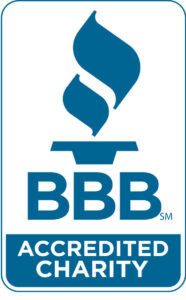FPWA NYC Budget Watch
Purpose
With ever increasing uncertainty facing NYC’s Budget, FPWA has recognized the need to ensure our members and the wider community are informed and aware of the latest updates. In response, we are launching a new series: NYC Budget Watch. Starting with the FY25 Modified Budget, FPWA’s Fiscal Policy Team will provide an overview of key facts and figures from each budget update, with key takeaways about what this means for the human services sector.
What is the Modified Budget?
The Modified Budget, or the “November Plan,” is an essential part of the City’s fiscal budgeting process. At this juncture, half-way through the fiscal year, the City assesses how expenditures and revenues have been tracking against the 5-year financial plan, outlined in the previous Adopted Budget. Given the economic performance of the City and updated fiscal projections, the Mayor’s Office of Management and Budget (OMB) has the power to reallocate funding to ensure a balanced budget. Importantly, this mid-year review sets the tone for the Mayor’s Preliminary Budget which will be released in January and formally start the budget negotiation process for the next fiscal year.
Key facts and figures
The 2024 Modified Budget shows the City in Good Fiscal Standing Due to Strong Economic Performance and Lower than Expected Spending on Asylum-Seekers
It is common for the City to underbudget both revenue and expenses in the Adopted Budget and then adjust them upwards as part of the Modified Budget, and FY25 was no exception. Both revenue and expenditure were revised upwards, with revenue coming in slightly higher than expenses.
According to the Modified Budget, New York City is currently in a strong financial position.
Funding
The City modestly outperformed its revenue projections, with a surplus of $256 million for FY25.
This was driven by higher-than-anticipated revenue, primarily from additional Federal and State grant funding.
With the revenue surplus, the City also re-estimated expenditures. The City revised upwards certain spending in areas such as policing ($139m for the restoration of the FY25 Uniformed Academy Class), education ($159m for carter cases) and cash assistance ($467m). It is common that these items, and others, are underbudgeted and then revised upwards – a practice that undermines transparency, and that is criticized by independent watchdogs such as the NYC Comptroller.
While overall expenditures have been revised upwards, certain expenditures were lower-than-anticipated. Interestingly, while the City found some savings on pensions and debt service, the majority of the cost savings came from Asylum Seeker spending. The Adopted Budget overestimated Asylum Seeker spending by about 9%, with expenses coming in around $500 million lower than expected. This underscores what FPWA and others have long been saying—the Administration’s estimates with respect to asylum seeker costs have been misleading, and unnecessarily scapegoat New York’s newest residents in the process.
Staffing
With the modest improvement in funding levels, authorized staffing levels for NYC agencies are also proceeding in-line with FY25 projections.
Of particular interest to FPWA is staffing for the Department of Social Services/Human Resources Administration which is responsible for administering New York’s social safety net programs. Approved staffing levels for DSS/HRA remained relatively flat, increasing just 0.2 percent from 12,138 to 12,166. While this is a slight step in the right direction, we know that staffing challenges remain. Despite some improvements, timeliness issues continue, with one third of new Cash Assistance applications still not meeting timeliness standards.
It is also important to note that while the City is “authorizing” more staffing, that does not mean they are able to fill those roles. Vacancies in city government have been high since the pandemic, and then exacerbated by the hiring freeze implemented by Mayor Adams in 2023[1]. Further, for far too many roles, City agencies have difficulty attracting and retaining staff due to relatively low wages that do not provide workers with the incomes required to feel economically secure.
We will continue to call for increased staffing levels and the filling of vacancies in human services agencies as we head into the FY26 Budget season.
[1] More information about the discrepancy between authorized and actual staffing levels can be found in the NYC’s Comptroller’s analysis of NYC Agency Staffing.
What this Means for the Human Services Sector
The 2024 Modified Budget includes funding increases for some human services agencies with decreases to others.
While staffing and funding was broadly in-line with projections, this didn’t play out evenly across all agencies. When looking at human services in particular, there were both winners and losers.
For many agencies, while the increases may appear promising, they come on a low funding baseline as we explained in our analysis of the FY25 Adopted Budget.
Things to keep an eye on moving forward
The Modified Budget projects modest budget gaps in the upcoming fiscal year. According to this updated financial plan, the projected fiscal gap is $5 billion. This is normal, and is slightly below the average projected budget gap that is usually predicted at this stage in the budget cycle.
With the City in firm financial standing, there is room for negotiation in the upcoming budget. The major concern remains the big unknown: Federal funding. We will be monitoring this closely through our NYC Funds Tracker, which we will be updating in 2025, and future editions of FPWA’s NYC Budget Watch. Stay tuned for more updates.
For any questions or more information in the meantime, please feel free to reach out directly to FPWA’s Fiscal Policy Team:
- Brad Martin, Senior Fiscal Policy Analyst, bmartin@fpwa.org
- Emily Pisano, Fiscal Policy Analyst, episano@fpwa.org
Stay in Touch
Join our network and learn about FPWA events and news.
All rights reserved.
LEARN MORE
ABOUT FPWA
GET INVOLVED



